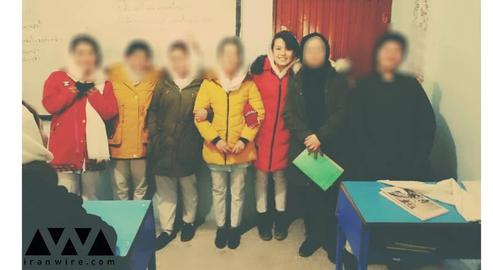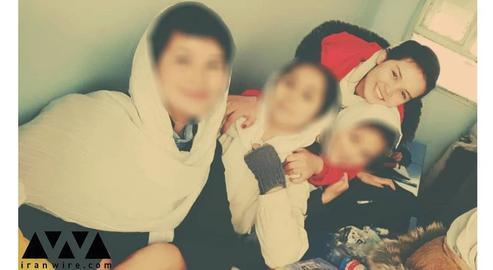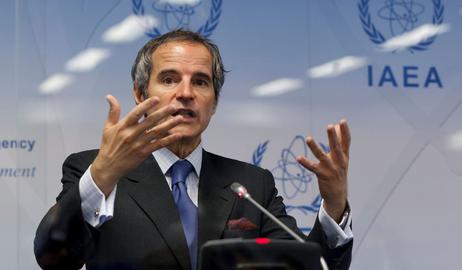The month of October is already coming to an end, and girls are still barred from going to school in Taliban-controlled Afghanistan. Grassroots campaigns have taken place in protest against the delay, but to no discernible effect; young women remain locked out of classrooms all out of the country, accelerating their erasure from public life.
Masoumeh Naseri, who recently turned 18, is just one of at least four million girls affected by the Taliban’s blockade on female education. She studied for years in Ghazni province before her family moved to Kabul just so she could continue her education. Before the capital fell in September she a 12th grade student at Kabul’s Marefat High School, with dreams of going to university. Now she is stuck at home and can't so much as get her hands on a book to read.
Even before Afghanistan was recaptured by the Taliban, Masoumeh says it wasn’t always easy for girls to secure an education. In Ghazni, she says, “Schools for girls were rare. Most families didn’t allow their daughters to attend. Another problem was the shortage of teachers, and we often didn’t have enough materials to go around.”
In western Kabul, Masoumeh and her family worked hard to keep her in school against a backdrop of insecurity, suicide bombings and armed attacks on educational institutions. "We were always worried, would we return home safe or not?” she says. “My family was always afraid we’d fall prey to an explosion on the way to school. They’d count the seconds until we returned.”
Despite all the challenges, Masoumeh stayed in school and up until last month, was still hoping to enrol at Kabul University to study psychology. “I wanted to become a specialist in the field,” she says, “and someday, to make my compatriots feel better. One of my other dreams was to be a speaker: with thousands of people sitting in front of me, to tell them how they could help themselves live a healthier, more humane life. I wanted to be a successful speaker and writer. But then, the Taliban took away our human rights. How can I become a psychologist when the Taliban are armed to the teeth?"
Masoumeh's throat chokes up with tears as she says this. “This situation was unimaginable to us,” she says, with difficulty. “My parents worked hard for me to study throughout these last 12 years. My father emigrated to pay for our education, and every time he called, he asked how I was doing. My mother is so frustrated now, and it frustrates me too, to see how painfully she stares into the middle distance, thinking about our lost future. My family’s situation makes my own pain worse.”
As the Taliban swept back through Afghanistan, Masoumeh stayed in touch with many of her other classmates, who were all going through the same agony. Many young women now fear the ban on their education will become permanent.
Bookstores, especially in Kabul, have also been affected by the Taliban’s lightning-fast ascent back to power. These days, Masoumeh says, she can’t even buy a book. With tears in her eyes, she places a series of photos that she took at school in front of our reporter. The girls are laughing heartily, their faces lit up with hope and aspiration.
What is Masoumeh’s message to the Taliban now? "If you think you can make progress without the presence of women and girls in society, you’re wrong. No society without women can achieve this goal."
She also wants the international community to press harder for women and girls to be allowed back into schools and universities. But the lingering despair is still clear in her voice: “No one is hearing us. The whole world is blind to our futures. I feel terrible these days. I hope no girl anywhere in the world has to feel like me. You don’t understand what the future holds for us, what the fate of our fellow citizens will be, what our security will be like. It’s all terrible.”
When it first came back to power the Taliban promised to allow girls to continue in education. But a month later, the gates remain locked, with no explanation given. The Taliban’s acting minister for education, Sheikh Molvi Noorullah Munir, has also inexplicably barred female teachers from educating boys, and male teachers from teaching girls.
Afghan girls and women are paying the highest price of the deal the developed world struck with the Taliban, as well as the incompetence of former government officials. The circle of restrictions on them is growing narrower by the day.
This article was written by a citizen journalist under a pseudonym.
Related coverage:
Protesting Women of Herat and Kabul: We Will Never Submit to the Taliban
Afghan Ex-Servicewomen in Hiding After Female Police Officer's Murder
Iranian Consulate in Herat Hawking Black-Market Visas to Afghans
Taliban Hangs Convicts' Corpses in the Streets, Iranian Style
'Now We All Grow Poppies': Afghan Farmers Predict Roaring Opium Trade Under the Taliban
Top Afghan Journalist in Turkey: I Knew I Had to Leave
'I Don't Know How to Keep Broadcasting': Afghan Media Members in Despair as Colleagues Flee
Afghan Journalists Fear for Their Lives After Mass Arrests
Taliban Assures Iranian Foreign Ministry its Diplomats are Safe
Iran's Interior Ministry: Afghan Refugees Will be Turned Back at the Border
visit the accountability section
In this section of Iran Wire, you can contact the officials and launch your campaign for various problems



























comments